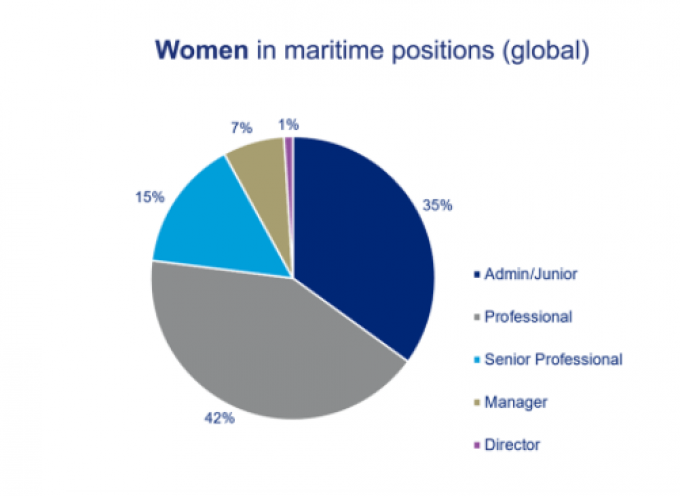Boom! calls on supply chain professionals to help evaluate career prospects
Boom!, the cross-industry community of female supply chain professionals, is asking the industry – both ...

Spinnaker Global’s head of marketing, Rachel Morgan, calls out the shipping industry in this piece in Fawcett Society, saying the treatment of women in the sector is “not good enough”. According to a report from Spinnaker, female employees are paid 45% less than their male counterparts, with only easyJet offering a wider gender pay gap (50%). Ms Morgan also highlights the massive number (50%) of female seafarers who have cited problems of sexual harassment at sea. And, she suggests, it is ...
Asia-USEC shippers to lose 42% capacity in a surge of blanked sailings
Why ROI is driving a shift to smart reefer containers
USTR fees will lead to 'complete destabilisation' of container shipping alliances
New USTR port fees threaten shipping and global supply chains, says Cosco
Transpac container service closures mount
Outlook for container shipping 'more uncertain now than at the onset of Covid'
DHL Express suspends non-de minimis B2C parcels to US consumers

Comment on this article
Janny Kok
February 26, 2018 at 3:55 pmUnfortunately, there is nothing really new about the observations of Rachel Morgen. In 2015 WISTA UK held the conference Women at the Helm. Please see the first two paragraphs of the article I wrote at the time:
THE WOMEN at the Helm Conference, organised by WISTA UK and The Nautical Institute at the start of the London Shipping Week, clearly unveiled the difference between the message that there is a dire lack of shipping and maritime skills available globally and the reality. Keynote speaker Captain Helene Peter-Davies told the ‘full house’ of delegates in London City Hall that from her own experience. After quite some years at sea in senior positions she wanted a suitable job ashore. “I was advised that I was over qualified, under qualified, under experienced, over experienced, too old, too young.”
She – being the only female in her cohort of men who wanted to change from sea to shore – finally got a job after about twenty unsuccessful interviews. As it is, she proves to be qualified enough to work in the capacity of a Lawyer, Master Mariner, and Chief Engineer. Other keynote speakers include a Master Mariner/Pilot and Surveyor, a Ship Manager and surveyor and the president and COO, Europe Division ABB: all of them female.
One can say that the maritime industry still creates its own shortage of qualified staff